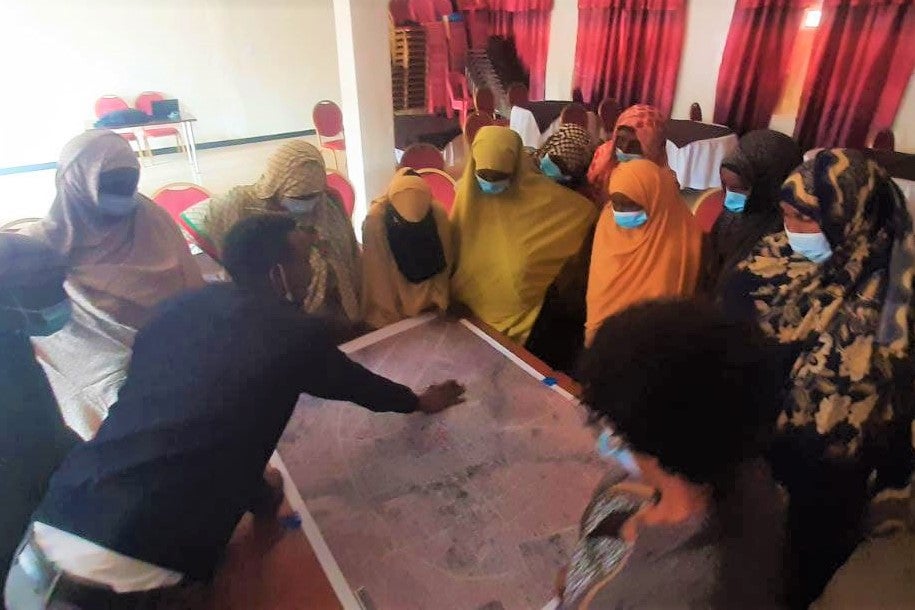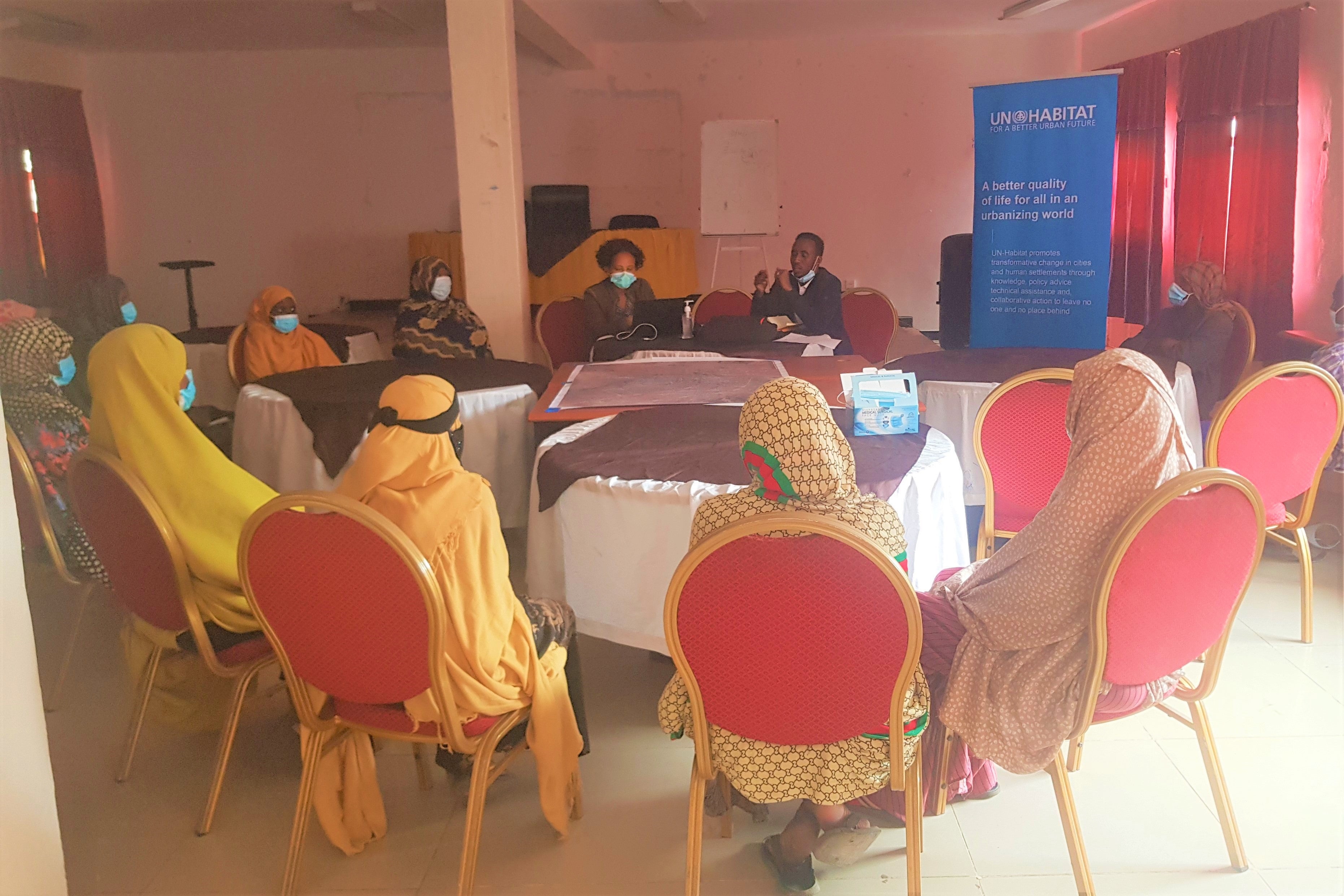Nairobi, 22 May 2021 - The launch of the “Global Report on Internal Displacement 2021” by the Internal Displacement Monitoring Centre (IDMC) underlines the scale of internal displacement situations, with 55 million people being internally displaced worldwide. The majority of those displaced seek refuge in urban centres.
UN-Habitat has been working with partners on internal urban displacement in Iraq, Somalia, Ethiopia, Mozambique and, since last year in Burkina Faso. The report highlights some of these as being among the “world’s fastest growing displacement crises.”
UN-Habitat, due to its expertise in urban systems, has been supporting humanitarian partners and implementing cross-sectoral and multi-level governance solutions to help include internally displaced people socially and economically in urban areas and increase social cohesion between communities.
UN-Habitat Ethiopia’s team is supporting the implementation of durable solutions for IDPs, ensuring the regional government and the receiving local governments are able to provide shelter, sanitation, water facilities and other interventions at allocated sites. Building on previous assessments of sites selected for the relocation of IDPs from temporary sites to permanent locations, and following the spatial profiling of one of the largest IDPs settlement in the country, UN-Habitat engaged IOM and FAO to jointly assess gaps in delivering options for durable solutions in selected locations in Somali Region of Ethiopia.

For this joint assessment, UN-Habitat used a mixed-method study, including participatory engagement with men and women of different ages, that found durable solutions in urban and rural areas. UN-Habitat Ethiopia is also coordinating the technical committee temporary set up to support the setting up of a Multi-Partner Trust Fund for durable solutions for IDPs in Ethiopia.

In Mozambique, around 700,000 people have fled mainly to urban centres, due to the armed conflict which started in 2017 in the Northern Region, in Cabo Delgado Province, the majority of them during the last year, as instability increases.
In support of planning, management, and implementation of actions to address recovery needs and urban durable solutions, UN-Habitat is participating in the formulation of the Resilience and Peace Building Assessment (RPBA). UN-Habitat is advocating and fundraising with other UN Agencies for the implementation of integrated urban interventions improving the living conditions of host communities and IDPs, as well as supporting a local governance mechanism to drive sustainable urban development.
UN-Habitat is piloting a project on durable, gender-sensitive housing solutions in partnership with UN-Women and is promoting integrated approaches for resilience to disasters and displacement in Ibo island with the Italian Ministry of Foreign Affairs. UN-Habitat has a long-term partnership with the Ministry of Education and has been working in Northern Mozambique, including in Cabo Delgado, on resilient schools’ rehabilitation to ensure continuous and adequate access to education in areas hosting large IDP populations which are exposed to cyclones and other natural disasters.
In Burkina Faso, there are over 1.2 million people displaced due to the tense security situation and cities in the Central Nord and Sahel regions have seen their population double or triple in a few months. Despite the generosity of the host communities, there is a lack of adequate housing and shelter and basic services and commodities, including water, sanitation and food.
Since October 2020, UN-Habitat has been implementing a project funded by the European Union called ‘’Increasing resilience of communities impacted by internal displacement and COVID-19’’, in collaboration with the Ministry of Urbanism, Housing and City. The project is focused on building local capacity on urban planning for better management of the rapid urban population growth due to the Sahel Crisis and includes components such as increasing access to adequate housing and improvement of basic infrastructure including schools, health and community centres.